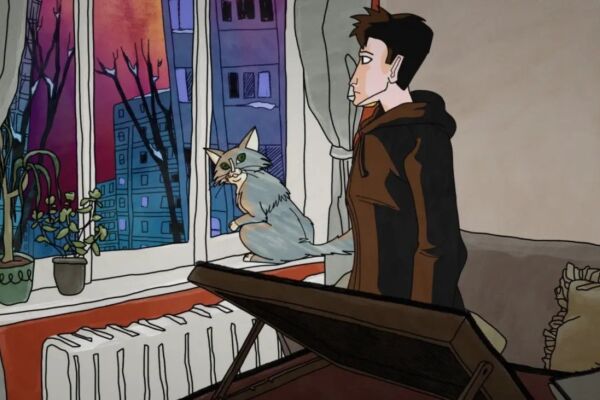Tree of Violence (2024, Anna Mosienko)
- FUTURE NARRATIVES
- Film
- Talk


This November RITCS will host a special cinema screening of the newly remastered video they shoot horses, one of the most widely acclaimed works from Phil Collins’ multifaceted practice which traverses the turbulent territories between performance and moving image.
they shoot horses was a disco dance marathon organised in 2004 with a group of young people in Ramallah, Palestine during the Second Intifada. Filmed in real time over the course of eight hours, the dancers pass through unfolding stages of elation, joy, fatigue, exhaustion, and endurance to a soundtrack of pop, rock and dance hits from the 1960’s on. The work’s title references the 1935 novel They Shoot Horses, Don’t They? by Horace McCoy which tells the story of gruelling dance competitions during the Great Depression as a form of entertainment. In today’s militarised capitalist imagination Palestinians are marked out as inevitably predestined for violence, suffering and obliteration; they, in the words of poet Hala Alyan, “disappear into ‘hordes’, ‘masses’, numbers so high it becomes impossible to imagine their nicknames or favourite songs.” Against such dehumanisation of Palestinian lives, the dancers in they shoot horses appear both as young people anywhere on a night out and distinctly individual.
Speaking to the hardships and resilience of living under the decades-long illegal occupation by the state of Israel, they shoot horses centres dancing as an act of resistance in the face of daily atrocities committed by a settler-colonial power, and as a fragile yet inextinguishable anticipation of liberation to come.
The remastering of they shoot horses has been made possible through support from BAK basis voor actuele kunst, Utrecht.
Phil Collins is a visual artist, filmmaker, community organiser, and educator renowned for a socially engaged practice which addresses the intersections of art, politics and lived experience. Across geographies, ethnicities, languages, and social classes, his approach is guided by an ethos of connection and a sustained engagement with the local context.



